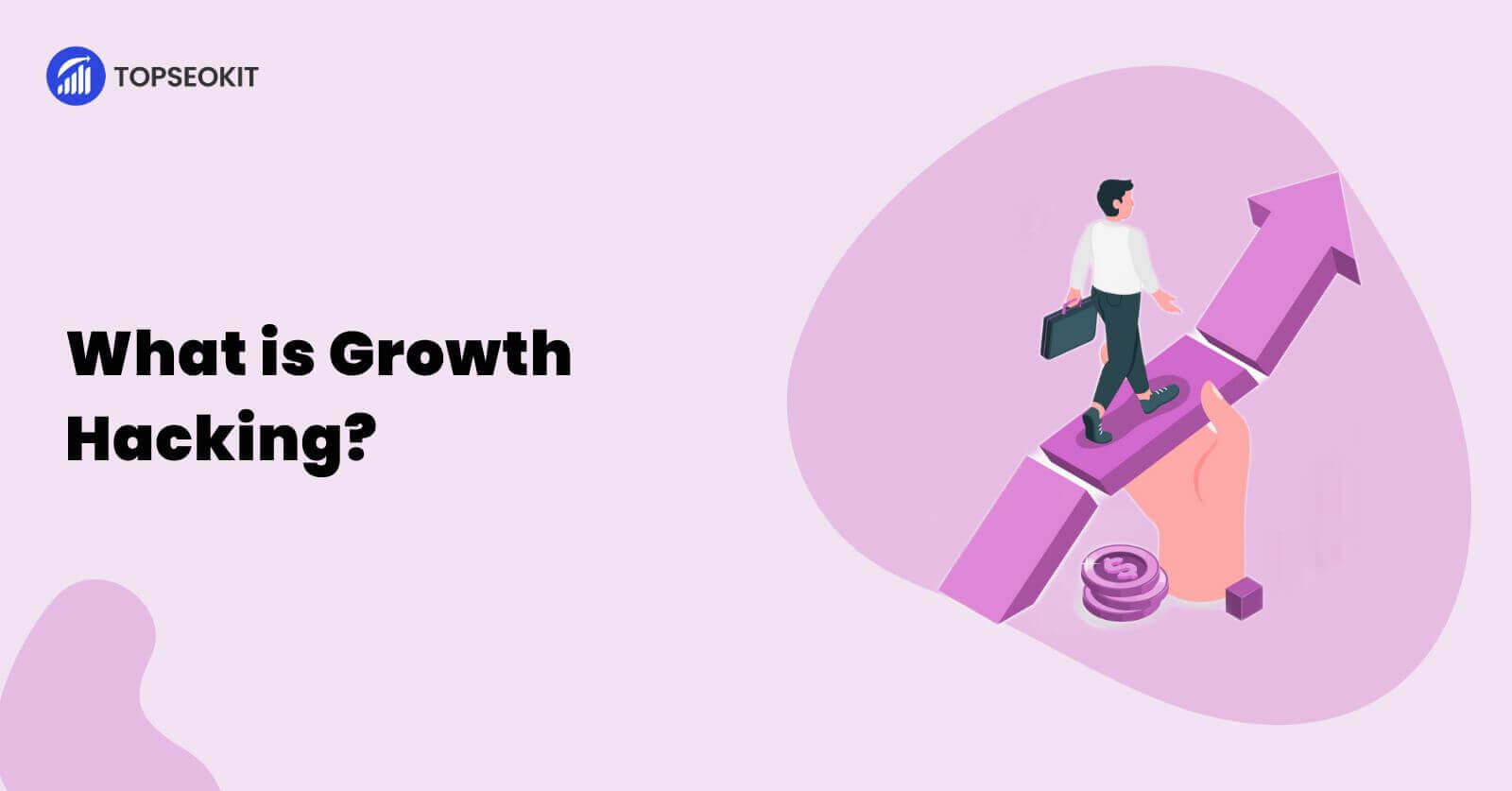
What is Growth Hacking? Is it still worth it?
Everything you need to know about Growth Hacking…Lets dive in!
In today’s fast-paced and competitive business landscape, finding effective and efficient ways to grow a business is crucial. One approach that has gained significant attention in recent years is growth hacking. Coined by Sean Ellis in 2010, growth hacking refers to a data-driven, experimentation-focused approach to marketing that aims to rapidly acquire and retain customers while driving sustainable business success.
In this blog, we will explore the concept of growth hacking, its evolution, and challenges, and assess whether it is still a viable strategy for businesses in today’s environment. We will also discuss alternatives and provide insights for businesses to make informed decisions about their marketing approach.
What is Growth Hacking?

Growth hacking is a marketing strategy that focuses on rapid experimentation and data-driven decision-making to achieve scalable and sustainable business success. It originated in the technology and startup space, where companies with limited resources and budgets sought innovative ways to achieve rapid growth. It is characterized by its agility, creativity, and focus on measurable outcomes.
Growth hackers leverage a wide range of techniques to achieve growth, including viral marketing, referral programs, product optimization, A/B testing, social media marketing, email marketing, search engine optimization (SEO), and more. The key is to constantly iterate and optimize strategies based on data-driven insights to drive exponential growth.
Evolution of Growth Hacking
Growth hacking initially gained popularity among startups and tech companies due to their need to rapidly acquire customers and gain market share. Early success stories of growth include companies like Dropbox, Airbnb, and Hotmail, which achieved massive audiences through innovative and unconventional strategies. Dropbox, for example, offered free additional storage space to users who referred friends, which led to rapid user acquisition and word-of-mouth marketing. Airbnb used clever SEO tactics to optimize their listings, resulting in higher search rankings and increased bookings.
The success of these companies led to the adoption of growth hacking by businesses of all sizes and industries, making it a mainstream marketing approach. It became synonymous with rapid growth and disruption, with businesses aiming to replicate the success of tech startups by employing similar strategies.
Challenges of Growth Hacking

This type of hacking has proven to be effective for many companies, it also faces challenges in today’s business landscape. Some of the key challenges include:
Changes in the digital landscape and consumer behavior:
The digital landscape and consumer behavior have evolved significantly since the early days of growth hacking. The proliferation of social media, the rise of ad-blocking, increased competition, and changing consumer preferences have made it more challenging to cut through the noise and capture user attention. Traditional growing techniques, such as viral marketing and referral programs, may not yield the same results as before.
Diminishing returns on traditional growth hacking techniques:
As it has become more mainstream, many companies have adopted similar tactics, resulting in saturation and diminishing returns. Tactics that once worked well, such as social media giveaways or influencer partnerships, may no longer be as effective due to increased competition and decreased consumer trust.
Ethical concerns and potential risks:
These techniques can sometimes raise ethical concerns and potential risks. For example, aggressive email marketing campaigns or viral campaigns that rely on exploiting psychological triggers may be seen as unethical or even spammy. There is also a risk of damaging a brand’s reputation or losing customer trust if growth hacking strategies are perceived as deceptive or manipulative.
Is Growth Hacking Still Worth It?
Despite the challenges, it can still be a viable strategy for businesses, depending on various factors such as the industry, target audience, and business goals. Here are some considerations to assess whether growth hacking is still worth it:
Effectiveness of growth hacking strategies:
While some traditional growth hacking techniques may have lost their effectiveness due to saturation or changing consumer behavior, there are still innovative and creative business strategies that can yield positive results. For example, companies like Dollar Shave Club and Slack have recently used growth hacking strategies to achieve rapid success through viral marketing and referral programs. It’s important to stay updated with the latest social media trends and tactics in growth hacking and adapt strategies accordingly.
Available resources and budget:
It is often associated with cost-effective marketing strategies that leverage creativity and data-driven decision-making. However, implementing and optimizing growing techniques may still require resources, such as skilled personnel, marketing tools, and a budget for experimentation and optimization. Businesses need to evaluate whether they have the necessary resources and budget to effectively execute these strategies.
Ethical Considerations and brand reputation:
Ethical concerns and brand reputation are crucial factors to consider when implementing hacking strategies. Deceptive or unethical tactics may lead to negative consequences, such as customer backlash or damage to brand reputation. It’s important to ensure that growth hacking strategies align with ethical principles, respect user privacy, and prioritize building a positive brand image.
Long-term sustainability:
Growth hacking strategies are often focused on short-term gains and rapid goals. However, businesses need to consider the long-term sustainability of their growth. Sustainable growth requires not only acquiring new customers but also retaining them and fostering loyalty. Businesses should evaluate whether growing strategies align with their long-term goals and customer retention strategies.
Complementary marketing approaches:
It can be more effective when combined with other marketing approaches. For example, content marketing and SEO can complement growth-hacking efforts by creating a strong online presence, improving organic search rankings, and providing value to potential customers. Branding and customer experience can also contribute to long-term growth by building customer trust and loyalty. Businesses should consider a holistic marketing approach that integrates growth with other strategies for optimal results.
Alternatives to Growth Hacking

While it can be effective in certain situations, businesses should also consider alternative marketing approaches that may be more suitable for their specific needs and goals. Some alternatives include:
Content marketing and SEO:
Content marketing and SEO are long-term, sustainable strategies that focus on creating valuable content and optimizing it for search engines. Content marketing can help establish thought leadership, build brand authority, and attract organic traffic, while SEO can improve search rankings and increase visibility in SERPs.
Branding and customer experience:
Building a strong brand and providing exceptional customer experience can result in customer loyalty and positive word-of-mouth marketing. By focusing on branding and customer experience, businesses can foster customer trust and loyalty, leading to sustained growth and customer retention.
Customer retention and repeat purchases:
Retaining existing customers and encouraging repeat purchases can be a cost-effective way to achieve growth. By providing excellent customer service, personalized offers, and loyalty programs, businesses can retain customers and stimulate repeat purchases, leading to increased customer lifetime value and business growth.
Collaborations, partnerships, and influencer marketing:
Collaborations, partnerships, and influencer marketing can help businesses reach new audiences, gain credibility, and increase brand exposure. By leveraging the influence and reach of relevant influencers or partnering with complementary businesses, businesses can tap into new markets and expand their customer base.
Conclusion
Growth hacking can be a viable strategy for businesses in certain situations, but it’s not a one-size-fits-all approach. Businesses need to carefully evaluate the effectiveness of hacking strategies, available resources, ethical considerations, long-term sustainability, and potential alternatives before implementing these tactics. It’s essential to stay updated with the latest trends and tactics, prioritize ethical practices, and ensure that hacking efforts align with the values and principles of the business. When done strategically and ethically,it can be a valuable tool for businesses to achieve rapid growth, gain a competitive advantage, and drive business success.
FAQs
Is growth hacking still effective?
It can be effective in certain situations, such as for startups and small businesses with limited budgets and resources. However, it’s important to carefully evaluate its effectiveness, ethical considerations, and long-term sustainability.
What are the risks of growth hacking?
Some risks of growth hacking include potential negative customer perception, damage to brand reputation, and short-term gains without long-term customer retention. It’s important to prioritize ethical practices and align growth hacking efforts with the values and principles of the business.
Should I rely solely on growth hacking for my marketing strategy?
While growth hacking can be effective, it’s not recommended to rely solely on it for your marketing strategy. It’s important to complement growth hacking with other marketing approaches such as content marketing, SEO, paid advertising, and customer retention strategies to achieve a well-rounded and sustainable marketing plan.
Also Read:
What is ChatGPT & How to use it like a pro?
Let’s dive in! Get started for free
